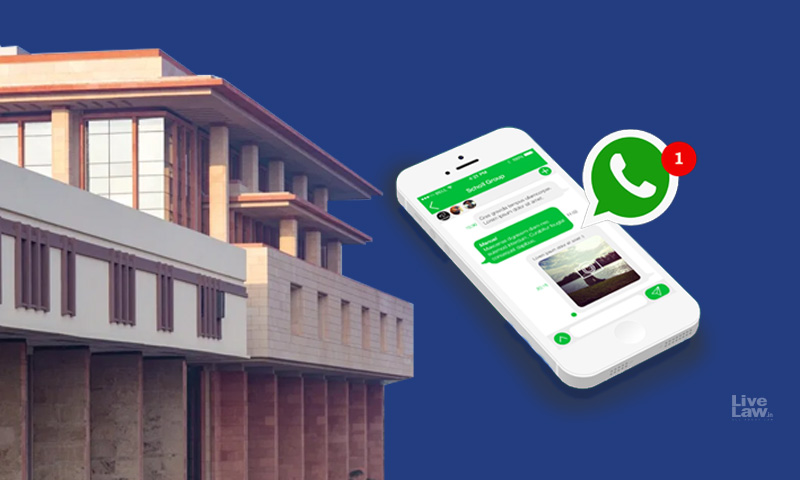- In a landmark legal battle challenging India’s amended IT rule, WhatsApp has issued a stern warning to the Delhi High Court.
- It said ‘if compelled to breach message encryption, the platform will cease operations in the country’.
- At the heart of the dispute lies Rule 4(2) of the Information Rules, 2021, which mandates social media intermediaries to enable the identification of message originators upon judicial order.
- Representing WhatsApp, Advocate Tejas Karia underscored the platform’s commitment to privacy, emphasizing its end-to-end encryption feature as a cornerstone of user trust.
- Recognizing the need for equilibrium between privacy and law enforcement, the court deferred the hearing to August 14, bundling it with related cases transferred from the Supreme Court.
- As the legal battle unfolds, the case assumes significance beyond India’s borders, resonating with global debates surrounding data privacy and government surveillance.
In a landmark legal battle challenging India’s amended IT rule, WhatsApp has issued a stern warning to the Delhi High Court: if compelled to breach message encryption, the platform will cease operations in the country. At the heart of the dispute lies Rule 4(2) of the Information Technology (Intermediary Guidelines and Digital Media Ethics Code) Rules, 2021, which mandates social media intermediaries to enable the identification of message originators upon judicial order.
Representing WhatsApp, Advocate Tejas Karia underscored the platform’s commitment to privacy, emphasizing its end-to-end encryption feature as a cornerstone of user trust. Karia asserted, “As a platform, we are saying, if we are told to break encryption, then WhatsApp goes.” He further condemned the rule as an infringement on privacy rights, highlighting the unprecedented burden of storing millions of messages indefinitely.
The court, probing the global precedence of such legislation, found no parallels, with Karia confirming that even in regions like South America and Brazil, such demands have not arisen. However, the government contended that regulations are imperative to trace message origins, citing instances of misinformation dissemination and stressing WhatsApp’s accountability.
Recognizing the need for equilibrium between privacy and law enforcement, the court deferred the hearing to August 14, bundling it with related cases transferred from the Supreme Court. Meanwhile, the Ministry of Electronics and Information Technology reiterated the necessity of implementing the 2021 IT Rules, citing concerns over tracking fake messages and maintaining societal harmony.
WhatsApp’s resistance stems from its principled stance on privacy, equating message tracing with a violation of end-to-end encryption and individuals’ privacy rights. The platform’s defiance underscores the broader tension between governmental surveillance and digital privacy, a conflict escalating worldwide.
As the legal battle unfolds, the case assumes significance beyond India’s borders, resonating with global debates surrounding data privacy and government surveillance. The outcome of this dispute could set a precedent for similar conflicts worldwide, shaping the future landscape of digital privacy regulation.
Ultimately, the standoff between WhatsApp and the Indian government encapsulates the broader struggle between technological innovation and regulatory oversight, with profound implications for digital rights and societal norms. In an era where data privacy is increasingly imperiled, this clash epitomizes the perennial struggle to balance security imperatives with individual freedoms in the digital age.
(With inputs from agencies)





